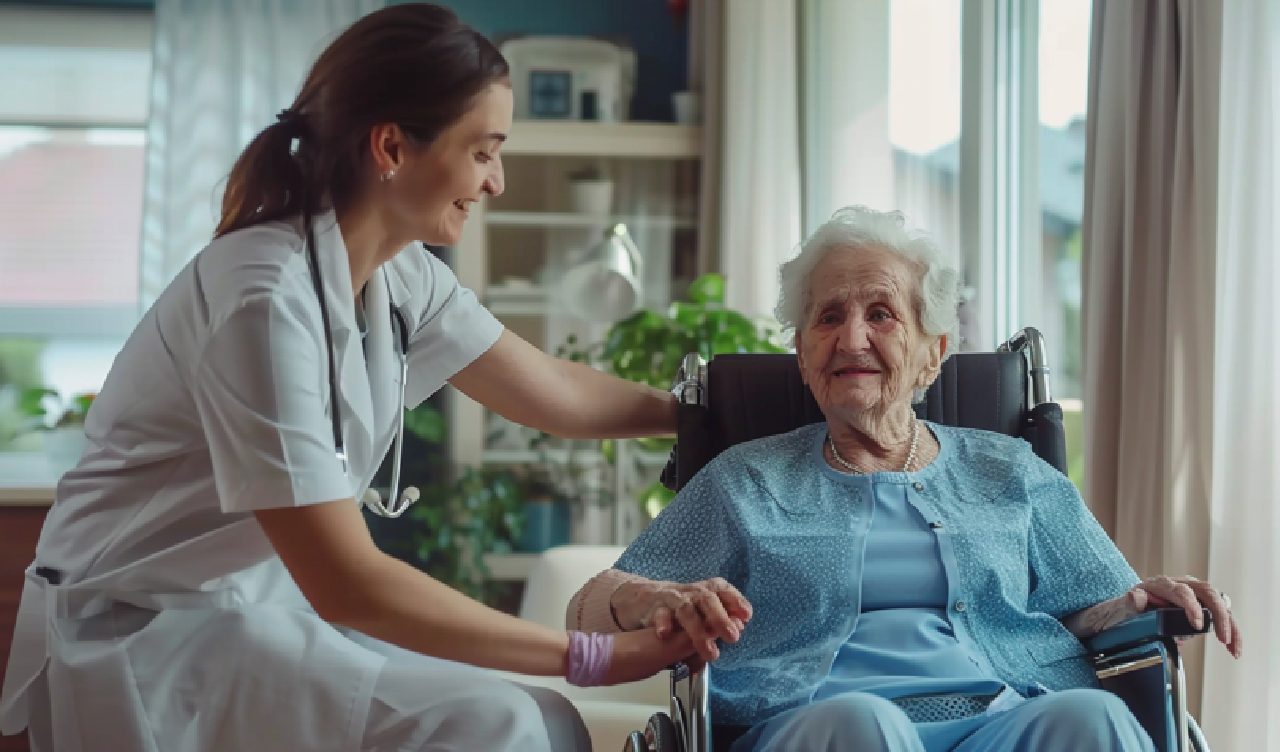
Nursing isn’t just a profession; it is service and beyond. If you have a passion for being a nurse, along with clinical skills, you must be equipped with more values like compassion, empathy, patience, and much more. Among the broad spectrum of specialisations in nursing, critical care nursing is the one that needs more precision and skills as it deals with such critical patients. This blog ‘How to Become a Critical Care Nurse in the UK?’ is all about critical care nurses, their responsibilities, and the steps towards it. Step into this divine profession either with regular or online nursing courses, so that you can proceed with both passion and profession!
Critical Care Nurses play a major role for patients in the continuum of care, especially in the preoperative and postoperative procedures where patients may require close supervision and hands-on management. Their main work involves evaluating, managing and constantly observing patients in times of emergencies, serious sickness or severe injuries.
These highly skilled nurses work in numerous settings that include hospitals, ICUs, progressive care, coronary care and specialized units like burn units and trauma centre emergency departments. Essential in the treatment delivery processes, they are present both in the public and private health systems, working hand in hand with the physicians and specialists, to come up with a comprehensive care plan for every patient.
Apart from professional nursing care of the patient, critical care nurses play an important role in enlightening patient’s families and involving them in patient care. Their job requires dealing with patients, and therefore, they always have to have good communication skills and practice empathy in their working environment, given that they are always working with medical conditions and treatment regimens.
However, the distinguishing feature of critical care nursing centres on the nurses’ extensive understanding of medical equipment, procedures, and making decision-making judgments. Nurse practitioners also learn how to operate equipment such as ventilators, give IV drugs accordingly, assess patients’ clinical statuses regularly and perform rapidly in crises. Their position demands that they update themselves on any advancement in Technology and medical practice to enable them to give the best service possible.
When compared to other specializations in nursing, critical care nurses seem to have more responsibilities.
Assessment and Monitoring: As a critical care nurse, your day starts with thorough assessments. You're the detective of the ward, constantly checking vital signs like blood pressure, heart rate, and oxygen levels! You keep a keen eye on everything—from the rhythm of their heartbeat to their neurological responses—so you can catch any changes early and take action.
Medication Administration: You administer medications precisely as prescribed, double-checking doses and watching closely for any side effects. Your record-keeping skills are top-notch because accuracy here can make all the difference in a patient's recovery journey.
Life-Saving Interventions: From performing CPR that restarts a heart to managing an airway to help someone breathe, your quick thinking and training kick in to stabilize patients during their most critical moments.
Technical Skills: Your comfort with high-tech gear is impressive. Ventilators, cardiac monitors, and infusion pumps; you're the expert who knows how to set them up, keep them running smoothly, and interpret the data they provide to adjust treatments as needed.
Collaboration with Healthcare Team: As a Critical Care Nurse, you collaborate closely with doctors, specialists, and other healthcare professionals to create personalized care plans. Your insights during patient rounds and care conferences help ensure everyone is on the same page for the best outcomes.
Patient and Family Education: Your job isn't just about treatments; it's about making sure patients and their families understand what's happening. You break down medical jargon, answer questions, and provide emotional support. It is all about empowering them to be partners in the recovery process.
Documentation: Detailed documentation of assessments, interventions, and how patients respond to treatments is crucial. It's not just paperwork; it's the roadmap that keeps care consistent and safe.
Advocacy: You advocate for their needs, which ensures that they receive the best care possible while respecting their wishes and autonomy. You are there to navigate any ethical dilemmas that come up, always putting their well-being first.
If you are a nurse, there are not many steps to specialize in critical care nursing. On the other side, if you are pursuing an online healthcare course, there are a few things you must know about the track to this field.
The first step is completing a bachelor's degree in nursing, which typically takes three to four years. This education is essential to acquire the foundational knowledge and clinical skills necessary for nursing practice.
After graduating, aspiring nurses must pass the NCLEX, which is a standardized exam that ensures nurses meet the minimum competency standards to practice in the UK.
Alternatively, if you’re already working in a healthcare setting, you may pursue a degree apprenticeship in nursing. This combines on-the-job training with classroom learning over approximately four years.
Once licensed as a registered nurse, you can pursue further specialization in critical care nursing. This involves completing a critical care nursing program, which can range from six months to two years. These programs focus on advanced skills such as managing ventilators, administering complex medications, and responding to emergency situations.
Critical care nursing in the UK demands a specific set of skills and qualities:
Critical-thinking and Problem-solving: Ability to analyze complex situations and make informed decisions under pressure.
Quick Decision-making: Capable of responding swiftly to emergencies and changing patient conditions.
Multitasking and Organizational Skills: Manage multiple patient needs and prioritize tasks effectively.
Observational Skills: Keen attention to detail to monitor patient responses and detect subtle changes in condition.
Interpersonal and Communication Skills: Strong ability to communicate with patients, families, and healthcare teams, especially during high-stress situations.
Compassion and Empathy: Provide emotional support to patients and families facing critical illnesses.
Written Communication and Research Skills: Documenting patient care accurately and contributing to evidence-based practice in critical care settings.